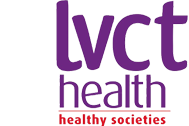The concept of support groups in improving health outcomes has been widely used in the health sector, especially within the HIV prevention and care & treatment programs.
USAID Stawisha Pwani has adopted the concept in reaching out to mothers with maternal infant and young children nutrition services through implementation of baby friendly community initiatives(BFCI), which aim at achieving better, reproductive, maternal, newborn, child & adolescent health and nutrition services in Kwale county.
Rithika (Swahili for satisfaction) Mother2mother support group is one of the 188 groups formed in Kwale County and situated within the Vyongwani health centre. The group was started in March 2022 and is comprised of 15 members who include breastfeeding mothers, pregnant women, community health volunteers and a few men who are spouses to some of the women.
Majority of the mother-to-mother support groups are composed of pregnant and lactating women, who come together to learn, discuss and support each other on issues of maternal infant and young child nutrition, in addition to identifying and engaging in economic empowerment activities.
“We no longer practice some harmful and cultural practices like giving our babies bitter herbs for colic, we now prefer breast feeding, which is safe and nutritious. This has brought positive changes in our children development. I have also learnt how to correctly breast feed my baby, handle the breast during breastfeeding and steps in breastfeeding, including weaning the baby after six months.” Nehema Mlawi, a mother of three.
The support groups also act as an opportunity to encourage young mothers during their first pregnancies on their pre and post pregnancy periods, as they meet mothers with more than one child who are able to share their experience before and after the training.
“When I joined the group, I learnt that I needed to start my pre-natal clinics early and get the key test done including HIV test. If I have any nutrition challenges I get supplements, which will ensure I stay healthy and give birth to a healthy and strong baby.” Naliaka Ruth, an expectant mother.
Earlier in the year, USAID Stawisha Pwani in collaboration with Ministry of Agriculture supported community health volunteers (CHVs) from Kwale county for a training on Nutrition and how to establish and maintain kitchen gardens. This was aimed at addressing food insecurity and improve farming skills in their communities. The CHVs were expected to establish demonstration kitchen gardens and train support groups within their link health facilities .
Rithika mother2mother support group was one of the beneficiaries of the gardening training. The group has been able to set up a vegetable nursery for demonstration and learning purposes during their weekly Friday meetings. During the meetings they also do some merry-go round savings, which is then given to one member after conducting balloting. The meeting is also an opportunity to visit their garden and get information from the health workers.
Other members have been able to start or boost their business activities through the savings plan. Saumu Kitsao, a member of the group shared her experience with the savings. “When I got some money from the group, I supported my family by buying some food and boosting my retail shop. This helped us during a difficult time when my husband was unwell and he appreciated it.” Recalls Saumu.
Rithika support group is one of the 10 groups within the Vyongwani community unit, the group has been able to start a couple of projects, which they plan to turn into income generating activities. In addition to the garden, the group members have started poultry keeping and hope to expand it in future to support their different income and supplements their nutrition through the eggs and meat from the chicken.
Peris Chao, the nurse at the Vyongwani health centre confirmed that the support group was of great help in improving the mother and child wellbeing.
“We have witnessed that exclusive breastfeeding for the first six months is now working. We have witnessed no cases of malnutrition during this period and most parents are promptly coming for vaccines. We have seen an increase in demand for individual birth plans.”
“Clinics are now starting early as required, there is correct use of supplements before birth. Cases of low hemoglobin during pregnancy are on the decrease due to proper nutrition. Family planning uptake has increased and there is increased demand from the husbands on family planning information and more men are accompanying their spouses to the clinic.” Shared Peris.
According to Faith Wangeci, the Nutrition Technical officer working for USAID Stawisha Pwani, Baby Friendly Community Initiative has demonstrated success in promoting exclusive breastfeeding, improving complementary feeding practices and in economically empowering women in Kwale County. She added that, strengthening and prioritizing BFCI interventions could have a significant impact on maternal and child health outcomes.
USAID Stawisha Pwani project has been able to train 224 CHVs from 21 Community health units, who have managed to form 188 mother-to-mother support groups reaching 3010 pregnant and lactating mothers.
Story and photos compiled by Alfred Itunga
